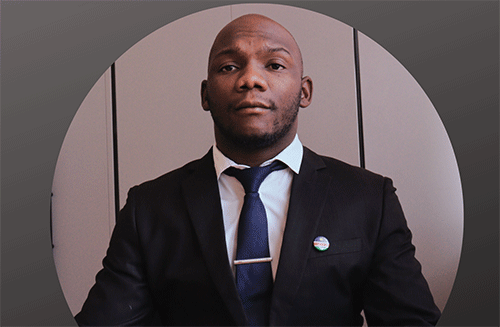General elections are due to be held in Namibia on 27 November this year to elect a new president and members of the National Assembly.
For Namibian citizens, an election is more than just a civic exercise. It is a critical moment of participation in democracy.
Voting is a platform where every eligible individual has the opportunity to influence the leadership, policies and direction of the country. Through elections, we, as Namibians, can choose representatives we can entrust with the responsibility to govern and make decisions on our behalf. It is a chance to hold leaders accountable, voice concerns, and set the path for the nation’s future.
Importance of voting
Empowerment and representation voting gives us a voice in shaping the future of our community, region and country. When we vote, we choose leaders who reflect our needs, priorities and aspirations.
Without voting, our voices are left unheard, and decisions will be made without our input. Holding leaders accountable enables citizens to evaluate the performance of our leaders. If leaders are failing to meet expectations – whether it is addressing poverty, youth unemployment or infrastructure, elections provide us with the opportunity to replace them with individuals committed to making meaningful change.
Through elections, we also protect our democracy by participating in elections, and strengthen democracy. A high voter turnout ensures that the government reflects people’s will, and that democracy remains vibrant, inclusive and participatory. Building the future – the decisions made today have long-lasting effects. Voting is an opportunity to influence policies that will benefit not just the current generation, but also future generations. It is a way to fight for better education, healthcare, job opportunities and a more prosperous nation.
What happens if some do not vote?
Weak representation can be the result if many citizens choose not to vote. It weakens the democratic process. A small, unrepresentative group ends up deciding the future for everyone, meaning the majority’s views, needs and concerns may not be reflected in leadership.
Stagnation and lack of change come by not voting – citizens allow the status quo to persist. If you are dissatisfied with the way things are – whether it is poverty, unemployment or poor service delivery – not voting means you are missing the chance to demand change through your vote. Low voter turnout signals disengagement from governance.
When fewer people vote, the connection between the government and its citizens weakens, leading to a government that may not prioritise people’s needs.
Creating a formidable voice
When we citizens come together and vote in large numbers, we create a formidable voice that cannot be ignored.
This collective power is crucial for driving accountability among our politicians, and leaders are more likely to respond to a unified electorate with clear demands for change.
Shaping a better future can lead to a strong, engaged voting bloc that can demand and ensure better policies, resources and services that improve education, healthcare, infrastructure and economic growth. Voting today ensures a brighter tomorrow for the next generation. The policies and leaders chosen in elections will directly influence the opportunities available to future Namibians.
Current situation
After 34 years of independence,
Namibia faces challenges such as a high poverty rate. While Namibia has made progress since independence, poverty remains a pressing issue, with many households struggling to make ends meet. Youth unemployment rate: youth unemployment rate is alarmingly high, leading to frustration and a lack of opportunities for the younger generation. Poor infrastructure and service delivery; In many areas, especially rural regions, infrastructure such as roads, water supply and healthcare services are inadequate, affecting the quality of life.
Do we have a reason to vote or not?
Every Namibian should ask themselves this question. If poverty is still widespread, youth unemployment is high and basic services are lacking, should we continue to stay silent. or demand change?
The answer is clear. We have every reason to vote. Voting gives you the power to demand better policies that tackle poverty head-on. Voting enables us to push for job- creation programmes and opportunities for young people. Voting can ensure that infrastructure projects are prioritised, and that essential services are improved.
A call to action
Namibians must come together with one voice during elections.
The more people vote, the greater the pressure on leaders to deliver on their promises. By uniting, we can demand better economic reforms that tackle poverty, job-creation programmes targeting youth emancipation, as well as infrastructure development that benefits both rural and urban areas. Elections offer an opportunity to make real, impactful changes. It is up to every Namibian to use their vote to demand progress, fight for justice, and build a better future for the generations to come. By voting, we take control of our destiny as a nation. By not voting, we let others decide our future. So, do we have a reason to vote?
Absolutely. Every Namibian must ask themselves: do I want to be part of the solution? If the answer is yes, then voting is the first step.
* Marembo Florian Jacky Marembo is a final-year Public Management student at the Namibia University of Science and Technology. He is the founder and director of Marembo Charity Foundation. He also serves as the national president of the African Young Leaders Foundation Namibia.


